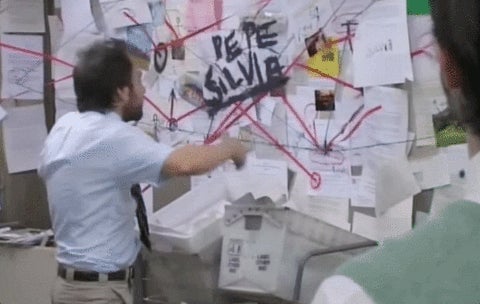🌎 Disney’s villain
Plus: The price tag of South Africa’s power crisis

Good morning, Quartz readers!
Here’s what you need to know
Florida governor Ron DeSantis finalized his Disney revenge. The Republican politician appointed a conservative board to Disney’s formerly self-governed district after the company opposed Florida’s “Don’t say gay” bill.
The US is linking manufacture subsidies to childcare provisions. The Biden administration is set to announce that chip makers seeking at least $150 million in funds will have to provide high-quality, affordable childcare.
Elon Musk is once again the world’s richest person. A surge in Tesla’s share price elevated the billionaire above French luxury tycoon Bernard Arnault.
TD Bank agreed to pay $1.2 billion to settle a Ponzi scheme lawsuit. The deal allows the bank to skip trial over its alleged involvement in disgraced financier Allen Stanford’s $7 billion fraud.
Rupert Murdoch admitted that Fox News anchors endorsed election conspiracies. The media mogul testified that his network’s hosts promoted falsehoods about the 2020 presidential vote.
Canada banned TikTok from government phones. It joins the US and EU in nixing the social media app, owned by Beijing-based ByteDance, for security reasons.
What to watch for
Today (Feb. 28), the US Supreme Court is scheduled to hear oral arguments in two cases related to president Joe Biden’s student loan forgiveness program. Those who oppose it aren’t arguing purely against debt relief, but are seeking to make a larger point about the president’s powers and their relation to the other branches of government.
The question is to what extent a president can make sweeping decisions by means of executive order. The Supreme Court has indicated in some recent cases that it favors the so-called major questions doctrine, a belief that decisions of “vast economic and political significance” should be based on clear support from Congress.
This principle could be applied to the student loan forgiveness case, and have broader ramifications for not just executive, but also federal agency powers. Limiting what a president or agencies can do without support from Congress is a tough prospect for Biden, whose party only commands one of the two legislative branches.
The price tag of South Africa’s power crisis
Power shortages are nothing new for South Africa, but the level of current blackouts—which have been lasting six to 12 hours a day—is plunging the country into an economic crisis.
There could be as many as 250 powerless days in South Africa in 2023, according to the country’s central bank, translating into a historic economic loss of $1.3 billion. Millions of dollars in business revenue have already been lost across all sectors, resulting in a 45% chance that the country will slip into a recession this year.
Unraveling Adani’s web of connections

Within the vast corporate network of India’s Adani Group, the names of some people pop up again and again, linked to multiple offshore entities that are both unclear of purpose and labyrinthine in structure.
In the wake of Hindenburg Research’s fraud accusations leveled at the Adani Group, these people and entities invite many questions. Quartz’s Samanth Subramanian delves into the murky connections of one Emirati businessman who keeps showing up in the paper trail.
✦ Love stories that help you connect the dots? Help keep our content free and accessible by picking up an annual membership. We’re offering 50% off for Daily Brief readers.
Surprising discoveries
Donkey-hide gelatin is kicking up a debate. A lawsuit claims Amazon products containing “ejiao” are illegal in California.
Carthusian monks are driving a chartreuse shortage. The religious order has agreed: less liqueur, more solitude and prayer.
Seeing through objects is now a cinch. Just grab yourself a pair of augmented reality X-ray goggles.
A sixth sense could actually be pretty common. All living cells may have the mechanics required to detect magnetic fields.
The smashed Koons balloon dog still has an interested buyer. So says artist and collector Stephen Gamson: “I find value in it even when it’s broken.”
Our best wishes for a productive day. Send any news, comments, chartreuse prayers, and Haley Joel Osment memes to [email protected]. Reader support makes Quartz available to all—become a member. Today’s Daily Brief was brought to you by Sofia Lotto Persio, Faustine Ngila, Julia Malleck, and Morgan Haefner.